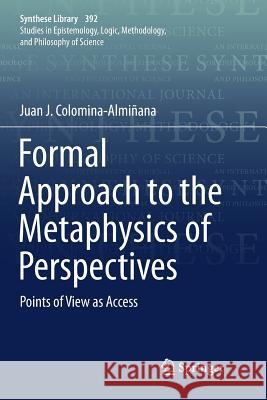Formal Approach to the Metaphysics of Perspectives: Points of View as Access » książka
topmenu
Formal Approach to the Metaphysics of Perspectives: Points of View as Access
ISBN-13: 9783319892559 / Angielski / Miękka / 2019 / 156 str.
Kategorie BISAC:
Wydawca:
Springer
Seria wydawnicza:
Język:
Angielski
ISBN-13:
9783319892559
Rok wydania:
2019
Wydanie:
Softcover Repri
Ilość stron:
156
Waga:
0.26 kg
Wymiary:
23.39 x 15.6 x 0.99
Oprawa:
Miękka
Wolumenów:
01
Dodatkowe informacje:
Wydanie ilustrowane











